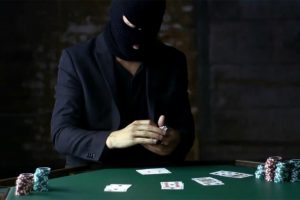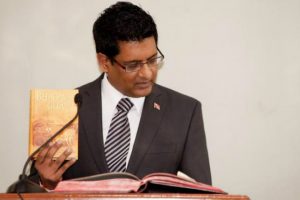 On Monday last week, Trinidad and Tobago’s government announced its new budget plan for the next fiscal year. It became clear that the officials consider doubling the gambling taxes. The bold move is part of the country’s approach to boost its threadbare economy. This is a big jump, which resulted in a massive discontent and even protests in front of the Parliament. Despite all the efforts, Planning Minister Camille Robinson-Regis announced that the government does not consider to back off from its budget plan.
On Monday last week, Trinidad and Tobago’s government announced its new budget plan for the next fiscal year. It became clear that the officials consider doubling the gambling taxes. The bold move is part of the country’s approach to boost its threadbare economy. This is a big jump, which resulted in a massive discontent and even protests in front of the Parliament. Despite all the efforts, Planning Minister Camille Robinson-Regis announced that the government does not consider to back off from its budget plan.
The dramatic rise is rough for the Trinidad and Tobago’s casino owners and it will squeeze their powers to operate. According to Former Food Production Minister and Deputy Director of the National Lotteries Control Board (NLCB) Devant Maharaj, the higher taxes imposed on the regulated casino market will encourage illegal trade.
Last week, the Trinidad and Tobago’s Finance Minister Colm Imbert left casino operators speechless after he unveiled his budget proposal, which plans a gambling tax reform. It was explained that the increase is justified as gambling increased its popularity over the years and the economy is in an urgent need of a strong boost. Imbert’s bombshell vexed many casino operators and 6 small casinos even announced that they will suspend operations due to the unbearable taxes. Apart from damaging the casino industry, many people will lose their jobs. This will deepen even more the country’s economic problems.
Former Minister Devant Maharaj’s Viewpoint
 Mr. Maharaj explained that the sharp increase will encourage people to bet illegally and fewer players will be channeled to the regulated sector. This, on the other hand, will stimulate the illegal gambling market to grow exponentially. He added that people would prefer to bet illegally as they will avoid the 10% tax on their winnings. The former NLCB Deputy Director explained that the launch of NLCB’s Play Whe in 1993 was accompanied with a serious crackdown on the illegal operation of the similar Whe Whe. Here it is interesting to note that Play Whe, also known as Chinapoo, is brought to Trinidad and Tobago by Chinese immigrants. At present, Whe Whe is the illegal counterpart of the NLCB’s Play Whe.
Mr. Maharaj explained that the sharp increase will encourage people to bet illegally and fewer players will be channeled to the regulated sector. This, on the other hand, will stimulate the illegal gambling market to grow exponentially. He added that people would prefer to bet illegally as they will avoid the 10% tax on their winnings. The former NLCB Deputy Director explained that the launch of NLCB’s Play Whe in 1993 was accompanied with a serious crackdown on the illegal operation of the similar Whe Whe. Here it is interesting to note that Play Whe, also known as Chinapoo, is brought to Trinidad and Tobago by Chinese immigrants. At present, Whe Whe is the illegal counterpart of the NLCB’s Play Whe.
Speaking of Imbert’s budget plan, Mr. Maharaj said that the Finance Minister allowed one big loophole in it. He failed to enforce the current law, which curbs the illegal Whe Whe, operated by non-national Chinese. It is to siphon off a solid amount of tax revenues, as the illegal Whe Whe have been estimated at $100 million a year. He warned that the punitively high taxes will unleash a hail of illegal gambling activities. Industry experts foresee a situation where many casinos will close doors and will deprive the Treasury of the much-needed tax revenues.



















